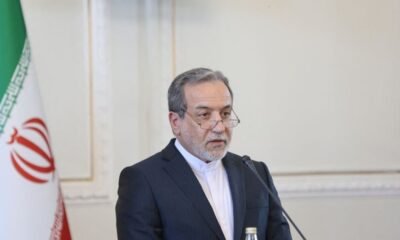INTERNACIONAL
Unearthed Mamdani clip reveals how his upbringing made him open to being called ‘radical,’ socialist
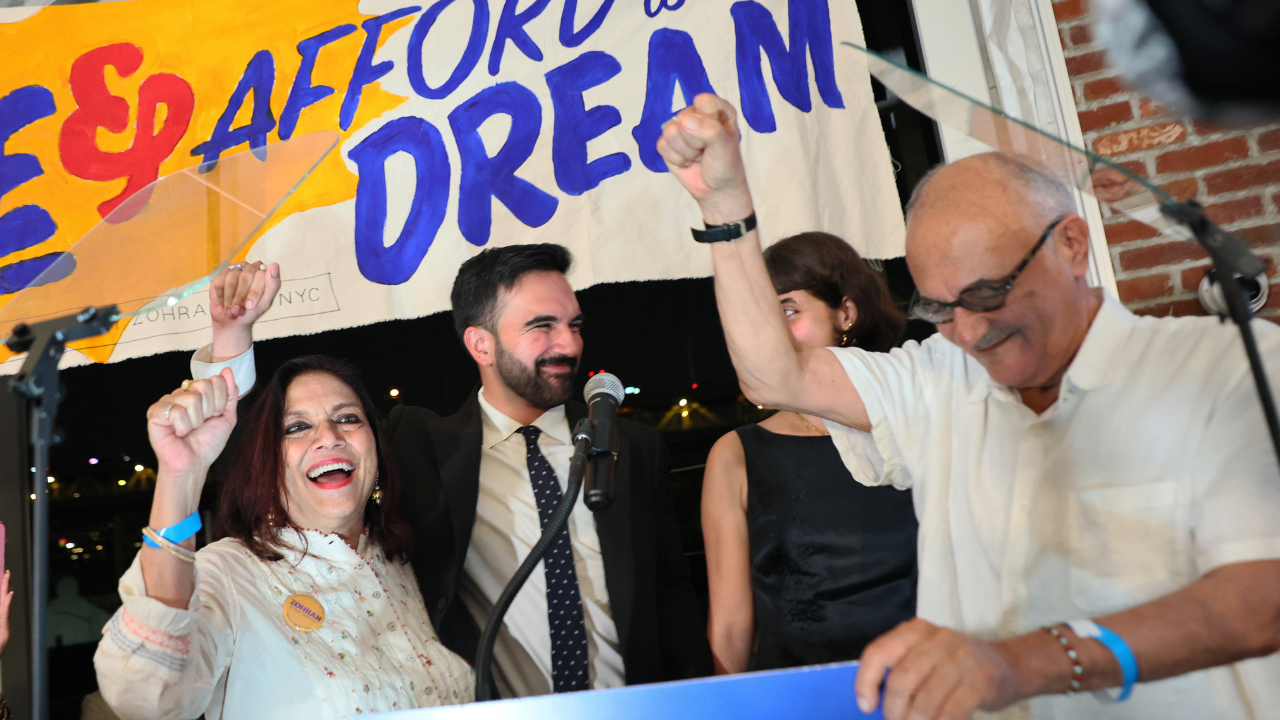
NEWYou can now listen to Fox News articles!
A resurfaced interview by New York City socialist mayoral candidate Zohran Mamdani shows him explaining that the family he grew up in made him «open» to being a «radical» and suggesting that socialism needs to be re-branded.
«I think, honestly, growing up in the family that I grew up in, I was quite open to what would be considered being a radical from a very young age,» Mamdani said on The Far Left Show in 2020.
«I mean, from the beginning, my identities are already considered radical by a lot of mainstream American political thought. So being a Muslim, being an immigrant, these are things that already kind of put you in the box of ‘other.’ And so it’s not that far of a jump because whenever you… stand up to speak up for the rights of others who share the same identity as you, then you’re a radical, right? So often people in this country are considered radicals if they stand up for Palestinian human rights.»
Mamdani has faced criticism over some of his positions taken as a young man, including supporting an academic boycott of Israel and starting a Students for Justice in Palestine chapter during his college days, as well as the past writings of his father, Mahmood Mamdani.
ZOHRAN MAMDANI FIRES BACK AT WHITE HOUSE MISPRONOUNCING HIS NAME: ‘M-A-M-D-A-N-I’
Mamdani explained his ‘radical’ background in a 2020 podcast appearance
Mahmood Mamdani’s social media presence is littered with anti-Israel positions referring to Israelis as «colonial settlers» and celebrating the idea of a «third intifada.» Additionally, Mahmood Mamdani sits on the council of an openly anti-Israel tribunal and once wrote in a book, which he dedicated to his son, that suicide bombers «stigmatized as a mark of barbarism.»
«Zohran Mamdani has built his political brand on the same radical, hate-filled and anti-American ideology his father, Mahmood Mamdani, has spent decades promoting—one that demonizes Jewish people and legitimizes anti-democratic violence,» Brooke Goldstein, a human rights attorney who specializes in antisemitism, told Fox News Digital earlier this month.
«The Jew-hatred the Mamdani family peddles is fundamentally anti-American and violates the core values our country was founded on—tolerance, equality, and liberty. Our nation’s strength lies in its diversity and commitment to protecting minority rights. Antisemitic world views threaten the peace and security of our communities.»
In the interview, the younger Mamdani went on to lament the criticism that Democratic Socialists of America have faced for supporting BDS.
MAMDANI CONFRONTED ON STREETS OF NYC ABOUT ‘COMMUNIST’ LABEL, REFUSES TO ANSWER
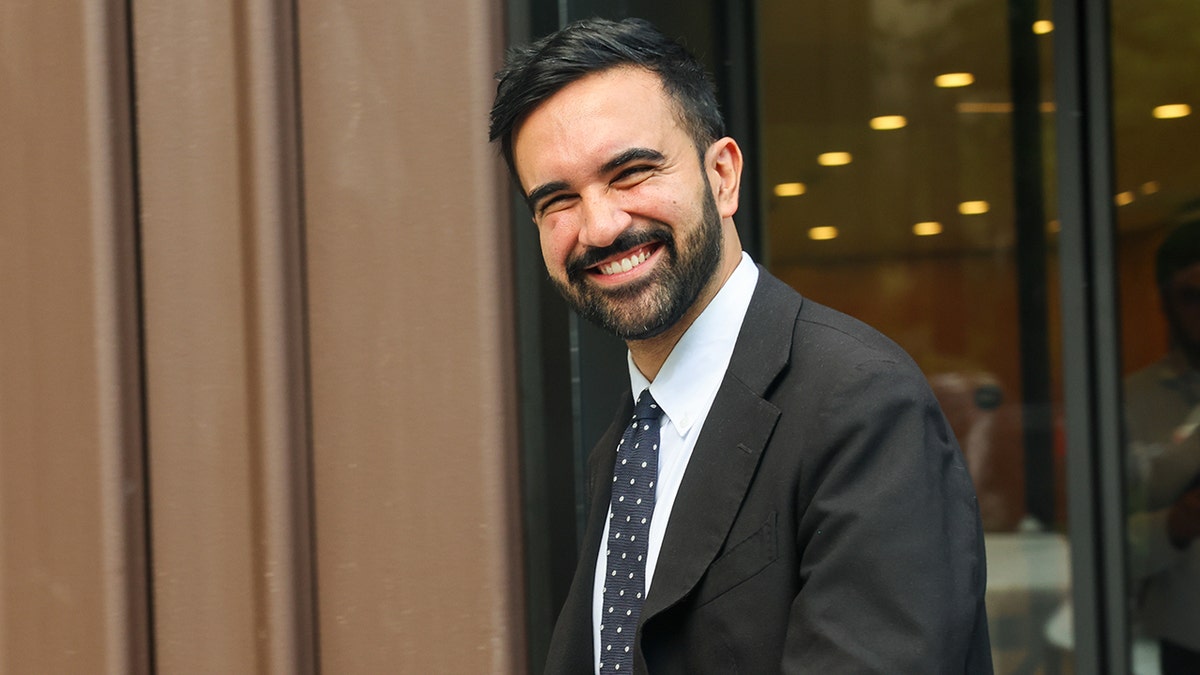
Democratic socialist candidate Zohran Mamdani, who won the Democratic primary for mayor of New York City, attends an endorsement event from the union DC 37 on July 15, 2025, (Spencer Platt/Getty Images)
BDS is described as «an international campaign to delegitimize the State of Israel as the expression of the Jewish people’s right to national self-determination by isolating the country economically through consumer boycotts, business and government withdrawal of investment, and legal sanctions,» according to Influence Watch.
Mamdani also explained in the interview his evolution as a «socialist.»
«I think I’ve been a socialist for quite a while, but I don’t think I understood myself within the terms of that label,» Mamdani said. «And I think that that is something that I not only internalized, but also became comfortable expressing when I became an active member of New York City DSA, which is an organization that I’ve been a member of. I attended my first meeting in early 2017, but I’ve been a much more active member since 2018.»
CLICK HERE TO GET THE FOX NEWS APP
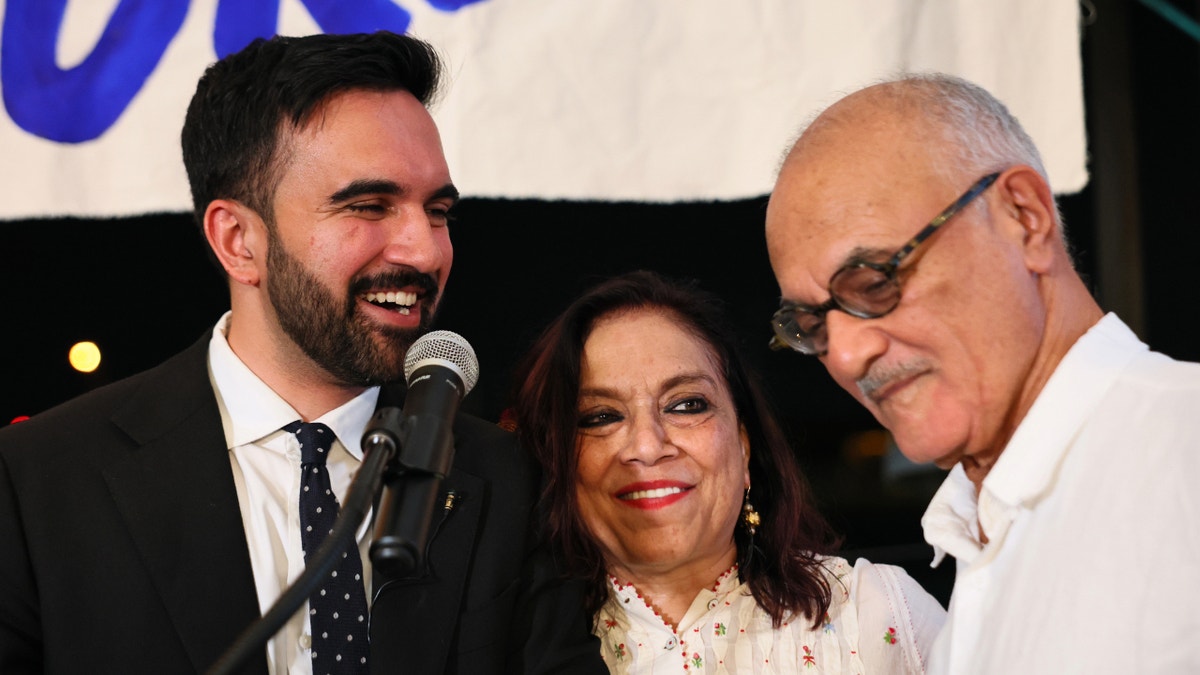
New York mayoral candidate, State Rep. Zohran Mamdani (D-NY) stands with his mother Mira Nair, and father Mahmood Mamdani as they celebrate during an election night gathering at The Greats of Craft LIC on June 24, 2025. (Michael M. Santiago/Getty Images)
Mamdani added that he hopes to rebrand the word socialism to be more appetizing for the general public.
«I think, for me, a lot of times people try and scare you into never embracing the word, and I think that there’s a lot of work that we have to do to change our branding, because socialism in and of itself, the way I understand it, is a fight for the state to provide all that is necessary to live a dignified life for each and every person in our state,» Mamdani explained.
«That is something that when you explain it in that way, and when you talk about the way in which it is applied, when you’re talking about typically housing, healthcare, education, but I would argue we must expand that beyond and talk about public transit and talk about the internet and talk childcare. People are receptive to that.»
Fox News Digital reached out to the Mamdani campaign for comment.
INTERNACIONAL
El régimen de Irán anunció que recibirá a un enviado del OIEA pero descartó inspecciones a sus plantas nucleares
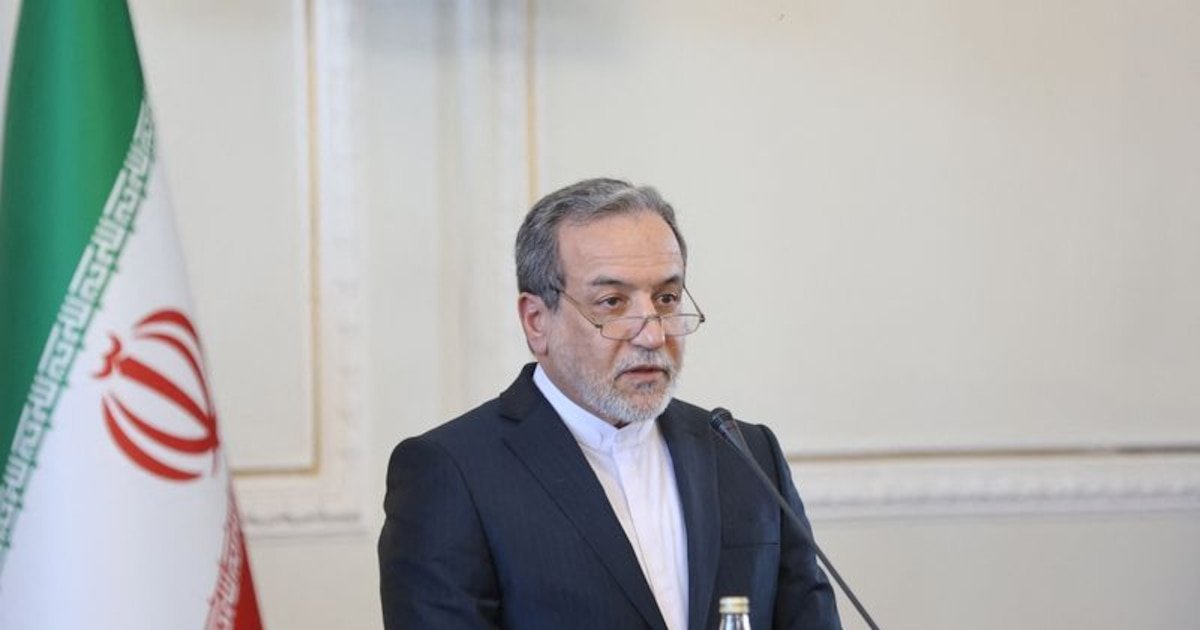
Un alto funcionario del organismo de control nuclear de la ONU viajará el lunes a Teherán para encauzar la crisis de acceso de la agencia, sin verificaciones in situ desde junio. Pero el régimen iraní adelantó que no habrá acceso a instalaciones. “Mañana se celebrarán negociaciones con el OIEA para determinar un marco de cooperación”, escribió el canciller Abbas Araghchi en Telegram.
“Un director general adjunto de Grossi vendrá a Teherán (…) no hay planes para visitar ningún sitio nuclear hasta que lleguemos a un marco”, agregó el canciller iraní.
El viaje llega tras un quiebre: desde los ataques israelíes de junio contra complejos nucleares iraníes, en el marco de una guerra de doce días, los inspectores del OIEA no han podido entrar a las plantas. El director del organismo, Rafael Grossi, dijo que restablecer las inspecciones es su prioridad, pero reconoció que, desde los bombardeos, no hubo verificaciones sobre el terreno.
Teherán culpa al OIEA de “allanar el camino” para esos ataques al divulgar un informe el 31 de mayo. Semanas después, la Junta de Gobernadores del organismo —integrada por 35 Estados miembros y reunida en la sede del OIEA en Viena— aprobó una resolución que declaró a Irán en incumplimiento de sus obligaciones de no proliferación nuclear. Este órgano, con representación rotativa y funciones ejecutivas, es el principal foro de decisión entre los plenarios anuales del OIEA. Grossi defendió el contenido del informe y negó que hubiera servido como cobertura diplomática para una acción militar.

El régimen de Irán defiende que su programa es pacífico, niega buscar armas y reafirma su apego al Tratado de No Proliferación (TNP). Sin embargo, el país ha acumulado uranio enriquecido al 60 %, un nivel extremadamente elevado para un Estado sin armas nucleares, lo que despierta sospechas. Según la OIEA, el stock estimado alcanzó alrededor de 408 kg, suficiente para varias cabezas nucleares si se refinara más. El director general, Rafael Grossi, advirtió que “solo países que están fabricando bombas llegan a ese nivel”, y manifestó que el organismo aún no sabe si ese material fue destruido o desplazado durante los ataques: “Puede que parte haya sido destruido como parte del bombardeo, pero otra parte podría haber sido trasladada. Habrá que aclararlo en algún momento”.
La nueva normativa iraní establece que cualquier inspección futura del OIEA requerirá la aprobación del Consejo Supremo de Seguridad Nacional de Irán, un filtro político que dota al régimen de un veto efectivo sobre las visitas a sitios sensibles. El Parlamento aprobó el proyecto el 25 de junio y, tras la promulgación presidencial, entró en vigor la semana siguiente.
Para el OIEA, el acceso es más urgente que nunca: la agencia debe determinar cuánto queda del inventario de uranio enriquecido hasta el 60%, y recomponer cadenas de custodia que se rompieron en junio. Sin inspectores ni monitoreo continuo, las estimaciones se vuelven menos precisas y aumenta el riesgo de percepciones erróneas.

En ese contexto, el anuncio de Araghchi funciona como un tanteo. La misión del alto funcionario busca acordar un marco, pero el canciller ya fijó límites: “No hay planes para visitar ningún sitio nuclear hasta que lleguemos a un marco”. Sin claridad sobre qué incluiría ese entendimiento —reinstalación de cámaras, agendas de verificación o visitas acotadas—, el margen de actuación del OIEA continúa restringido.
Fuera de Irán, gobiernos como los de Estados Unidos, Francia y el Reino Unido consideran que el cierre de acceso marca el mayor retroceso en la verificación nuclear de la última década. Washington calificó de “inaceptable” la suspensión de cooperación, mientras que Israel presiona a las potencias europeas para que activen el mecanismo de restablecimiento de sanciones previsto en el acuerdo nuclear de 2015. El retiro temporal de inspectores por razones de seguridad dejó al OIEA sin capacidad de observación directa, advirtieron funcionarios, recordando situaciones críticas vividas en crisis anteriores.
En paralelo, la diplomacia regional actúa con extrema cautela. Araghchi dijo recientemente que Irán está “abierto” a conversaciones con Estados Unidos, aunque descartó por ahora contactos directos y condicionó cualquier diálogo a los intereses de Teherán, una señal de que la puerta no está cerrada pero tampoco entreabierta.

El informe del 31 de mayo —en el centro de la disputa— se publicó dos semanas antes del estallido de la guerra de 12 días entre Israel e Irán. El 12 de junio, en vísperas del conflicto, la Junta de Gobernadores del OIEA declaró a Irán en incumplimiento de sus obligaciones de no proliferación, decisión que Teherán calificó de “parcial” y “políticamente motivada”. Al día siguiente, Israel lanzó una ofensiva contra instalaciones militares y nucleares iraníes, luego Estados Unido también se uniría a los bombardeos. Según cifras oficiales, los ataques dejaron más de mil muertos en Irán, entre ellos civiles y miembros de las fuerzas armadas. La respuesta iraní incluyó más de 500 misiles balísticos y un millar de drones contra territorio israelí, con un saldo de 28 muertos y miles de heridos.
El desenlace de la visita de este lunes será un termómetro. Si las partes acuerdan un marco que permita restituir pasos básicos —acceso a registros, inspecciones focalizadas y un calendario verificable—, la OIEA podría empezar a recomponer la confianza. Si fracasa, el mundo seguirá sin visibilidad sobre un programa que, sin inspecciones, resulta más difícil de medir y más fácil de malinterpretar, con todos los riesgos que ello entraña para la estabilidad regional.
Diplomacy / Foreign Policy,Middle East,TEHRAN
INTERNACIONAL
Summertime and the living is uneasy on Capitol Hill

Trump goes after Schumer: Tell him ‘GO TO HELL’
Fox News White House correspondent Peter Doocy joins ‘America Reports’ to discuss the President Donald Trump accusing Senate Minority leader Chuck Schumer of extortion after asking for $1B unfrozen in exchange for nominee confirmations.
NEWYou can now listen to Fox News articles!
Senate Republicans faced a choice recently: Remain in session and confirm more of President Trump’s nominees, or finally abandon Washington for the vaunted August recess.
Senators hung around – a little while – knocking out some of the President’s nominees for administration positions. But not all. That drew the ire of some conservatives, Trump loyalists and President Donald Trump himself.
Trump seethed at Senate Minority Leader Chuck Schumer, D-N.Y., for requiring the Senate to run lengthy parliamentary traps and incinerate valuable floor time to confirm even non-controversial nominees. The President finally unloaded on the New York Democrat in a digital coup de grace, telling him to «GO TO HELL!»
It’s notable that Trump has not yet met with Schumer or House Minority Leader Hakeem Jeffries, D-N.Y., during his second term. But then again, this is a two-way street. And Democrats remember multiple tumultuous meetings with Mr. Trump during the last time he was in office. It culminated in verbal grappling between the President and former House Speaker Nancy Pelosi, D-Calif, and ended with Democrats abandoning the meeting after only a few moments.
TRUMP TELLS SCHUMER TO ‘GO TO HELL’ OVER SENATE NOMINEE DEAL FUNDING DEMANDS AFTER NEGOTIATIONS COLLAPSE
So, it’s far from certain any such meeting would yield anything remotely productive.
But back to the «August recess.»
First, it’s important to establish that members of the House and Senate are not on «summer vacation.» Sure, there are always some breaks to visit with family and friends. Lawmakers are people, too. But truly, this is not a «break.» Lawmakers are always «on.» Not everything they do is centered around Washington. Any congressman or senator worth their salt will tell you that spending time back in their home states or districts is just as important – if not more so – than what goes down on Capitol Hill. Meeting with constituents. Visiting businesses. Conducting town hall meetings. Stopping by local coffee bars. Breaking bread at diners. Chatting up the local press corps.
Members also use this longer respite for political travel and fact-finding missions overseas. These «CODELS» – short for «Congressional Delegation» – are a critical function for lawmakers to build bridges with foreign leaders and make their marks on how the U.S. approaches the rest of the globe. House Speaker Mike Johnson, R-La., and former House Majority Leader Steny Hoyer, D-Md., have recently led groups on trips to Israel. At least one other major trip is booked for later this month.
So, the «August recess» is not inherently a «bad» thing. It’s an essential part of the job and probably one of the biggest misnomers in American politics.
Still, many Americans simply dismiss August as a «vacation» for House members and senators, and it is a challenging optic for Congress.
Which brings us back to the tension between staying in session to get «something» done and returning home.
RECESS ON ICE AS REPUBLICANS HUNKER DOWN FOR HIGH-STAKES NOMINEE BLITZ
It’s clear the Senate could have stayed in session to plow through more of President Trump’s nominees. Schumer and other Democrats simply weren’t going to relent and allow Republicans to confirm a slate of nominees «en bloc.» That’s where the Senate greenlights a large slate of nominees all at once and approves them either by unanimous consent or via voice vote. The Senate confirms the nominees all at once. The House certainly could have stayed in session to hammer out a few spending bills ahead of the deadline to fund the government by October 1.
But here’s a stark reality – especially for the Senate:
Lawmakers and staff desperately needed a break.
Period. Full stop.
Since May, the Senate in particular has conducted multiple overnight, round-the-clock and weekend sessions. Not just a few. The Senate voted deep into the night or overnight on the Big, Beautiful Bill. Then the Senate was back for late-night sessions confirming nominees.
Yes. This is the people’s business. But the floor staff and support teams were exhausted. Senate leaders were mindful of that. And that’s to say nothing of the lawmakers themselves.
It’s anecdotal, but lawmakers probably needed a break from one another, too. That makes them happier – and probably more productive when they return to Washington.
But this still doesn’t solve the political dilemma facing Republican senators with a substantial core of their party demanding they remain moored in Washington to grind out nominees.
And it may not satisfy President Trump, either.
There’s lots of Senate talk now about «changing the rules» to accelerate the confirmation of nominees.
One thing is for sure: the Senate won’t change the «rules» to expedite the confirmation process. The Senate boasts 44 standing rules. It takes 67 votes to break a filibuster on an actual rules change. But what Senate Majority Leader John Thune, R-S.D., could do is back the Senate into a special parliamentary posture where he can initiate a new «precedent» to confirm different types of nominees. That’s a maneuver that late Senate Majority Leader Harry Reid, D-Nev., executed to confirm some of former President Obama’s nominees. The same with former Senate Majority Leader Mitch McConnell, R-Ky., to confirm Supreme Court nominees.
DEMS DIG IN, TRUMP DEMANDS ALL: NOMINEE FIGHT BOILS OVER IN SENATE AS GOP LOOKS FOR A DEAL
«New precedents» in the Senate require some complicated parliamentary wrangling. But only a simple majority is necessary to make good on this gambit for nominees. So, it’s easier and much more plausible than «changing the rules.»
To the lay person, a new «precedent» doesn’t sound important. But there’s a reason why the Senate only has 44 standing rules and a voluminous book of precedents. You can accomplish a lot in the Senate if you’re able to concoct a new precedent.
And note that it’s not just Republicans who want to change the way the Senate does things for some lower-tier, non-controversial nominees. Some Senate Democrats have expressed interest in changes, too.
President Donald Trump and Senate Minority Leader Chuck Schumer, D-N.Y., have strongly over the confirmation of a number of Trump’s nominees for various administration positions. (Getty Images)
There are only so many minutes and so many hours. Time is just as valuable to Democrats as it is to Republicans.
Everyone on Capitol Hill knows that more long nights and overnight sessions await lawmakers in September and the fall as the Senate attempts to confirm additional nominees.
That’s to say nothing of avoiding a government shutdown in October.
CLICK HERE TO GET THE FOX NEWS APP
This is why Senate Republicans elected to stick around for a bit recently – and then call it a day. Or a month.
After all, there is only so much time available in August.
politics,senate,house of representatives politics
INTERNACIONAL
Faith under fire: Netanyahu calls out efforts to divide Christians and Israel in US

NEWYou can now listen to Fox News articles!
Israeli Prime Minister Benjamin Netanyahu has warned of a concerted effort in the United States and beyond to «break down» the bond between Christians and Jews.
Speaking at an event last month in Jerusalem attended by Pastor Paula White-Cain, spiritual advisor to President Donald Trump and head of the White House Office of Faith and Anti-Semitism, Netanyahu stated, the «partnership that promotes Judeo-Christian values, that protects Israel’s Christians as nowhere else in the Middle East. That truth is being reversed,»
«As part of this campaign,» he continued, Israel is now being portrayed as a threat to Christians.»
Netanyahu said that Israel is home to a thriving Christian community — unique in a region where Christians often face persecution. He pointed to Nazareth as a place where Christian life is visible and open, contrasting it with Bethlehem, where the Christian population declined sharply — from 80% to under 20% — after Israel withdrew, and the Palestinian Authority assumed control, leading to reduced protections for the community.
TRUMP AND NETANYAHU CELEBRATE ‘HISTORIC VICTORY’ AGAINST IRAN, EYE FUTURE MIDDLE EAST PEACE
Pastor Paula White-Cain, spiritual advisor to President Donald Trump and head of the White House Office of Faith and Antisemitism (sitting next to Sara Netanyahu) meets Prime Minister Benjamin Netanyahu and his wife Sara at Daystar’s «Together As One» event in Jerusalem, as part of a visit organized by Niv Jacobi, President of The Meaning Channel. (Felipe Volokita, The Meaning Channel.)
Pastor John Hagee, the influential Founder and Chairman of Christians United for Israel (CUFI), said fringe online agitators and politicians are motivated by two distinct impulses in their attacks on Israel.
«The true narcissists, regardless of politics, will pursue relevance through antisemitic contrarianism if they perceive themselves to be slipping from the world’s stage. Tragically, trafficking in antisemitism is one of the shortest paths to infamy,» he told Fox News Digital.
«For the true Jew-haters, Christian Zionism has been correctly perceived as the bulwark against the rise of American antisemitism. As Israel’s Minister for Strategic Affairs [Ron Dermer] has pointed out, Christian Zionism is the backbone of American support for Israel.
«Those who hate Israel and want to see it destroyed understand that the Jewish-Christian alliance prevents them from achieving their terrible aims; it’s logical then that they would seek to drive a wedge between Jews and Christians. Our relationship is a direct and unequivocal refutation of their evil ideology and aims,» he said.
Hagee also warned that anti-Israel narratives are being amplified online and through the mainstream media «to the exclusive benefit of Palestinian terrorists.»
DISPUTED FIRE BY ANCIENT CHURCH IN HOLY LAND SPARKS DIPLOMATIC, RELIGIOUS FALLOUT
During his speech, Netanyahu focused on some in the voices in the media. «So, Israel, the guardian of Christianity in the Middle East, is presented on American television by purchased influencers. It’s presented as the enemy of Christianity. What folly, what lies. What a travesty of truth,» he said.
«We must fight for our common values, we must stand up for the truth. And by standing up for the truth, you stand up with Israel, and you stand with the Jewish people against this abomination of falsehoods,» he concluded.
Netanyahu’s comments came against the backdrop of recent allegations that extremist settlers had targeted a historic church in the West Bank, and the IDF had deliberately targeted a church in Gaza.
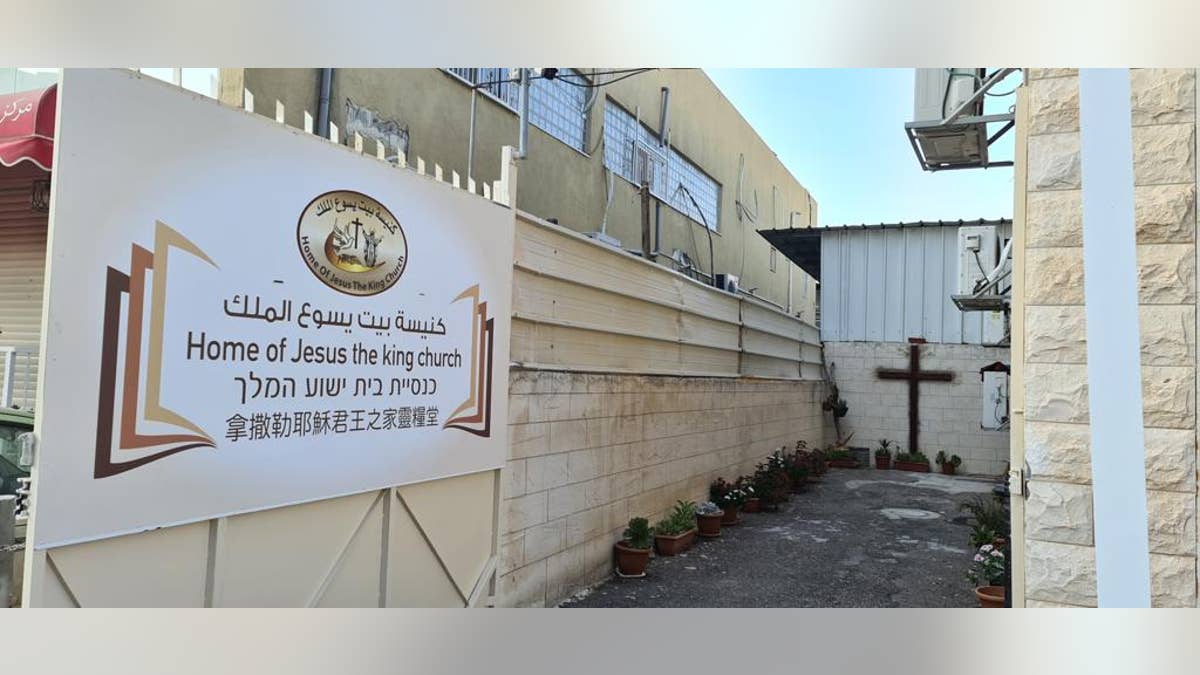
Jesus the King Church in Nazareth, Israel (Photo: Pastor Saleem Shalash.)
In mid-July, the Council of Patriarchs and Heads of Churches of Jerusalem claimed that «radical Israelis» had intentionally set a fire near the Church of Saint George in Taybeh. However, Israel Police later confirmed that the ancient church ruins were undamaged and that the fire, of unknown origin, was confined to a nearby open area.
Separately, the IDF confirmed that a July 17 mortar strike on the Holy Family Church in Gaza was the result of an «unintentional deviation of munitions.» An investigation found that the church had been accidentally hit during operational activity in Gaza City. The military said it facilitated humanitarian aid deliveries to the church and coordinated a visit by clergy from the Greek and Latin Patriarchates.
Dr. Mike Evans, founder of the Friends of Zion Heritage Center in Jerusalem and a former evangelical advisor to President Donald Trump, pointed to the billions of dollars invested by anti-Israel actors to influence young minds on American campuses.
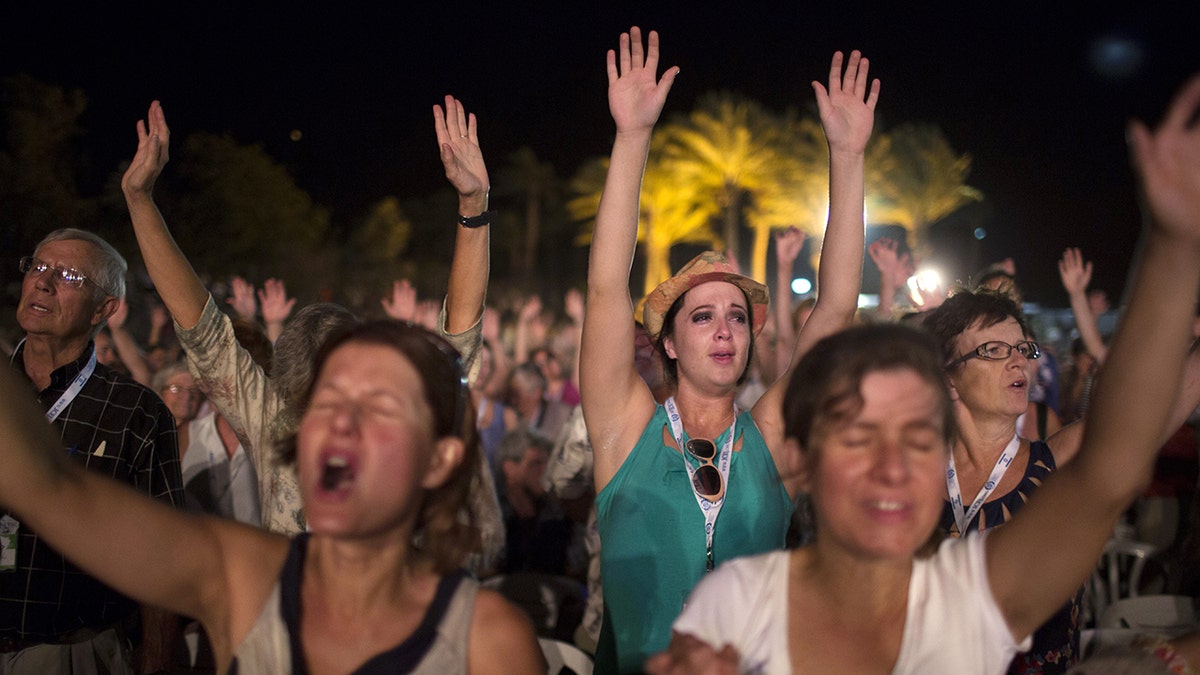
Thousands of evangelical Christian pilgrims pray during a prayer gathering on the Dead Sea shore in Ein Gedi on September 20, 2013, in the Judean Desert, during their annual visit to Israel to mark the Jewish holiday of Sukkot (Tabernacles) and to express solidarity with Israel. Some five thousand Christian pilgrims from around the world arrived for a week-long visit to Israel, in an annual show of solidarity with the Jewish state. (Menahem Kahana/AFP via Getty Images)
EVANGELICAL LEADERS PRAISE TRUMP’S CONTINUED SUPPORT FOR ISRAEL AMID WAR WITH IRAN
«The bottom line on this narrative is that there’s a belief system that Israel’s existence is illegitimate. They don’t say this about any other country in the world, no matter how bloody its origins. This belief system gets Jews killed. Anti-Zionism is antisemitism,» he said.
«My message to Bible-believing Christians is to teach a biblical worldview that Israel is the Bible land. The church in Germany was evangelical Protestant. They aligned with the Nazi party, had swastikas on its altars, and believed that God sent the chancellor.
«This happened because they rejected a biblical worldview and bought into what is called ‘replacement theology.’ That’s the reason why I have developed a significant curriculum to teach the church and its leaders,» Evans noted.
David Parsons, Senior Vice President and Spokesman of the International Christian Embassy Jerusalem (ICEJ), told Fox News Digital that Christian support for Israel — rooted in decades, if not centuries, of history—has grown to unprecedented levels, though it is being heavily tested amid the war against Hamas in Gaza.
«It predates Trump and Netanyahu, it will be there after those leaders are gone,» he said.
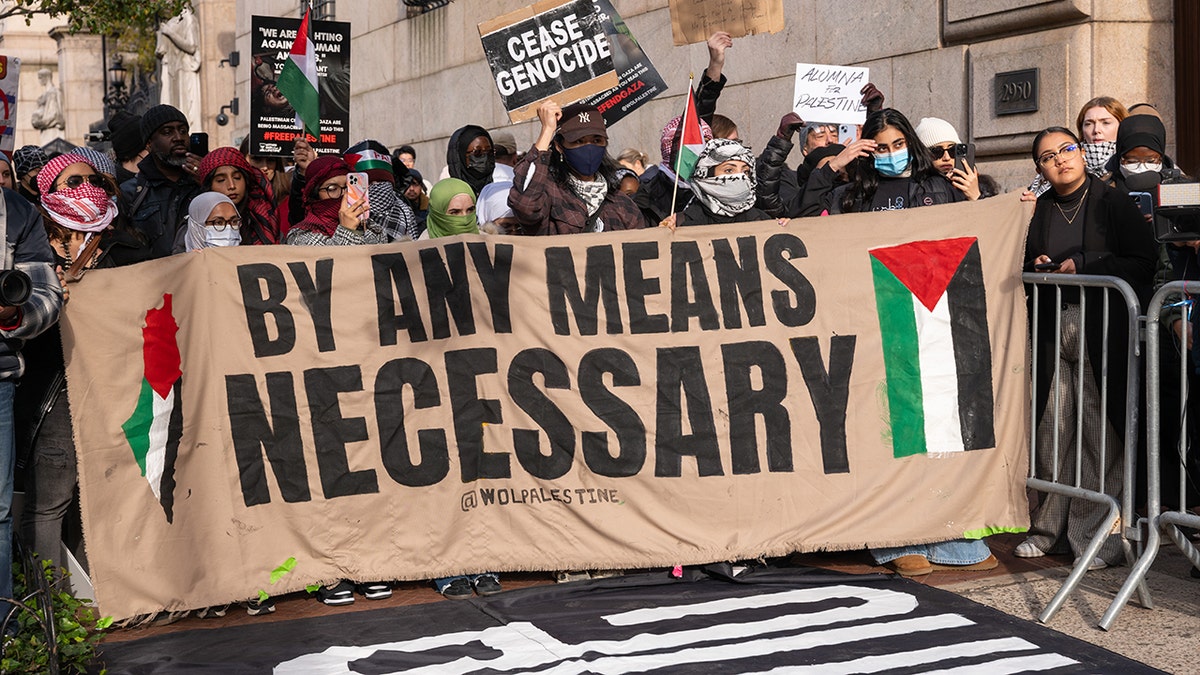
Students at Columbia University participate in an anti-Israel and pro-Palestinian protest. (Spencer Platt/Getty Images)
«We have to pass the baton to a new generation, and this is where the challenge is coming, as a lot of the young Christians aren’t buying into the same rationale as their parents to support Israel, which a lot of it was based on certain prophetic scenarios and prophecy charts about Israel’s role,» he continued.
«We see it as God being faithful to his covenant promises to the patriarch Abraham 4,000 years ago. If God is faithful to what he promised Jewish people millennia ago, then he will be faithful to what he’s promised us under the new covenant,» he said.
Parsons noted that bringing young Christians to experience Israel firsthand helps cultivate that connection.
CLICK HERE TO GET THE FOX NEWS APP
«A lot of the young evangelical supporters of Israel are not in some of these elite universities where they’re being poisoned against Israel, and so we have hope,» he said.
«When you see the amazing things that Israel has done — the pager operation [against Hezbollah], how they defeated Iran in 12 days — if you’re a young person, you have to be impressed with Israel’s creativity and ingenuity,» he continued. «Eventually, once we get a resolution of the Gaza situation, there will be a whole new generation of Christians that are curious enough to come and check it out.»
israel,christianity religion,anti semitism,conflicts

 POLITICA2 días ago
POLITICA2 días agoMilei grabará la cadena nacional con un mensaje sobre los vetos orientado a “amurallar el déficit cero y la política monetaria”

 POLITICA3 días ago
POLITICA3 días agoLilia Lemoine reaccionó a las declaraciones de Diana Mondino y dijo que “atentó” contra el Presidente: “Está armado”

 POLITICA1 día ago
POLITICA1 día agoCristina Kirchner cruzó a Milei por los anuncios en la cadena: “Te van a sacar con un chaleco de fuerza”




